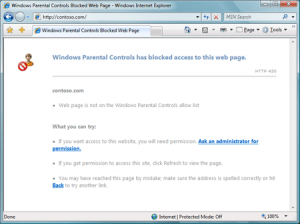
Without a doubt, the internet has changed many lives in more ways than one. Letters that used to take months to be delivered by regular mail can now be sent and delivered in a split second through email. Instead of just talking on the phone with loved ones in distant countries, you can now have a video call over the internet – and it costs even less than a local phone call. If, in the past, you had to physically knock on your neighbor’s door to make friends, now you can meet and make friends over the internet. A lot of people have developed long-term friendships online and meet personally years after they’ve first made contact over the internet.
However, like almost anything on earth, the internet does come with a few issues. Although the internet has made communication with others faster, it has become little bit more impersonal; video-calling is done so frequently the joy and excitement initially felt when faced with the prospect of talking to family and friends has diminished; and as for making friends online, sadly, most people would rather cultivate online friends instead of caring for off-line relationships. Of all three, the latter is probably the aspect of the internet that brings the most danger.
Making online friends is something everyone is capable of doing: kids do it via Instant Messaging, chatting on chat rooms or online gaming communities; and adults make new friends online via internet dating websites and the like. Of all the ages that dabble into making online friends, the ones in the younger age group are more at risk.

Researches have shown that one in five children who use computer chat rooms has been approached over the Internet by pedophiles and one in 33 have received aggressive sexual solicitation which includes asking to meet off line, calling the phone, and sending inappropriate mail or and other messages. What’s alarming is that, only 25% of the youth who received sexual solicitation told a parent. What happened to the other 75%? Did they just shut off the computer and delete their online accounts? How much information have they shared with this “internet friend”? Did they meet up with the internet predator and were they sexually assaulted?
Parents don’t want their children to fall prey to these internet predators and, if you think getting the IP Address is a sure fire way of tracing these individuals, it’s no longer as simple as that. Internet pedophiles are now becoming more internet savvy and are adopting counter intelligence techniques to protect their identities and their locations. Given that the online predators are taking steps to protect themselves, the only thing parents can do is to do their best to protect their children from being a victim on an online crime, or worse, be another statistic.
According to Crimes Against Children Research Centre 77% of the targets for online predators were in the teenage years, from at least 14 years old and older. A smaller percentage (22%) targeted children between 10 and 13 years old. If your children are in one or both of these age groups, you need to be extra vigilant about the time they spend on the internet and do everything you can, short of employing Draconian techniques – such as hovering over their shoulder to check what they are doing, or cutting out internet usage entirely – to ensure their safety.
Put your Computer in the Living Room

One way to monitor your child’s computer usage is to make sure the computer is placed in the lounge or another common area in the house. This way you can casually see who your children are chatting with or what websites they are on; and you can perhaps see if your child/children are becoming uncomfortable with what he’s seeing on or receiving from the internet.
Install Filtering or Blocking Software or Set up Parental Controls

According to the Center for Missing and Exploited Children, only 1/3 of households with internet access have filtering or blocking software installed on their computers. There are various kinds of software available in the market – some blocks pop-up windows, some filters adult content from websites, and there are gadgets such as the porn stick which will help you check if porn has been viewed through your computer.
Limit Internet Use

Another way you can protect your child is to limit their use of the internet to a certain number of hours per day or per week. You can also restrict computer use to before 8:00 pm. Most internet predators look for “friends” late at night, when they know that the parents are in bed and the child’s internet use is unattended.
But what about when your kids are not at home? How do you protect them from online predators when they are using the computers and internet connections at their friend’s house or when they log in online via free public wi-fi?
You really cannot do anything about where and when your child goes online when he is not in the house. The most that you can do is to give them as much information as you can about the possible dangers in the internet.
Talk to your Children Regularly

Talk to your children about the dangers of sharing personal information or pictures online. Researches show that up to 75% of children are willing to share information about themselves and their family in exchange for goods and services; or simply because they trust their online friend.
Remind your children that if they have questions about sex or need to discuss something of a sexual nature, they should approach you first, instead of talking about these matters with strangers on the web.
Tell them that they should never be afraid to talk to you about anything – if they are being bullied either physically or via online means, they should tell you; if they have an online friend who they now feel uncomfortable chatting with, they should tell you as well. If they have received sexual advances, or have been sexually molested – you should be their first point of contact. Let your children know that you will always be there for them and will support them – no matter what.
Be More Involved in Your Children’s Lives

It’s not enough that you constantly talk to your child. You need to show them that you are interested in them and are happy to spend time with them. Encourage your child to join clubs; go on hikes and picnics with them. If your child is happy with his “real life” with real friends and people, it’s less likely that he will have the time, or the interest to create an online persona to make friends.
There are other ways you can protect your kids online. For younger children, you can have them watch cartoon videos promoting online safety. Exhaust all the possibilities. Get all the information you can get and share these with your children.
Barret Hudson is a professional blogger that provides news and information on legal topics. She writes for Musca Law Sex Crime Defense, where you can find the best Florida federal sex crimes defense attorney to fight your case.